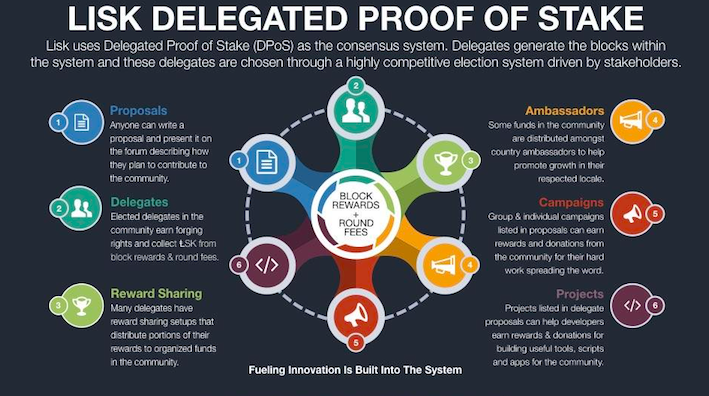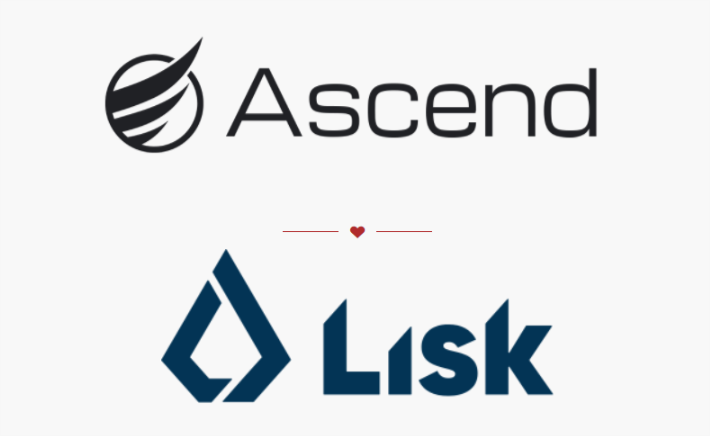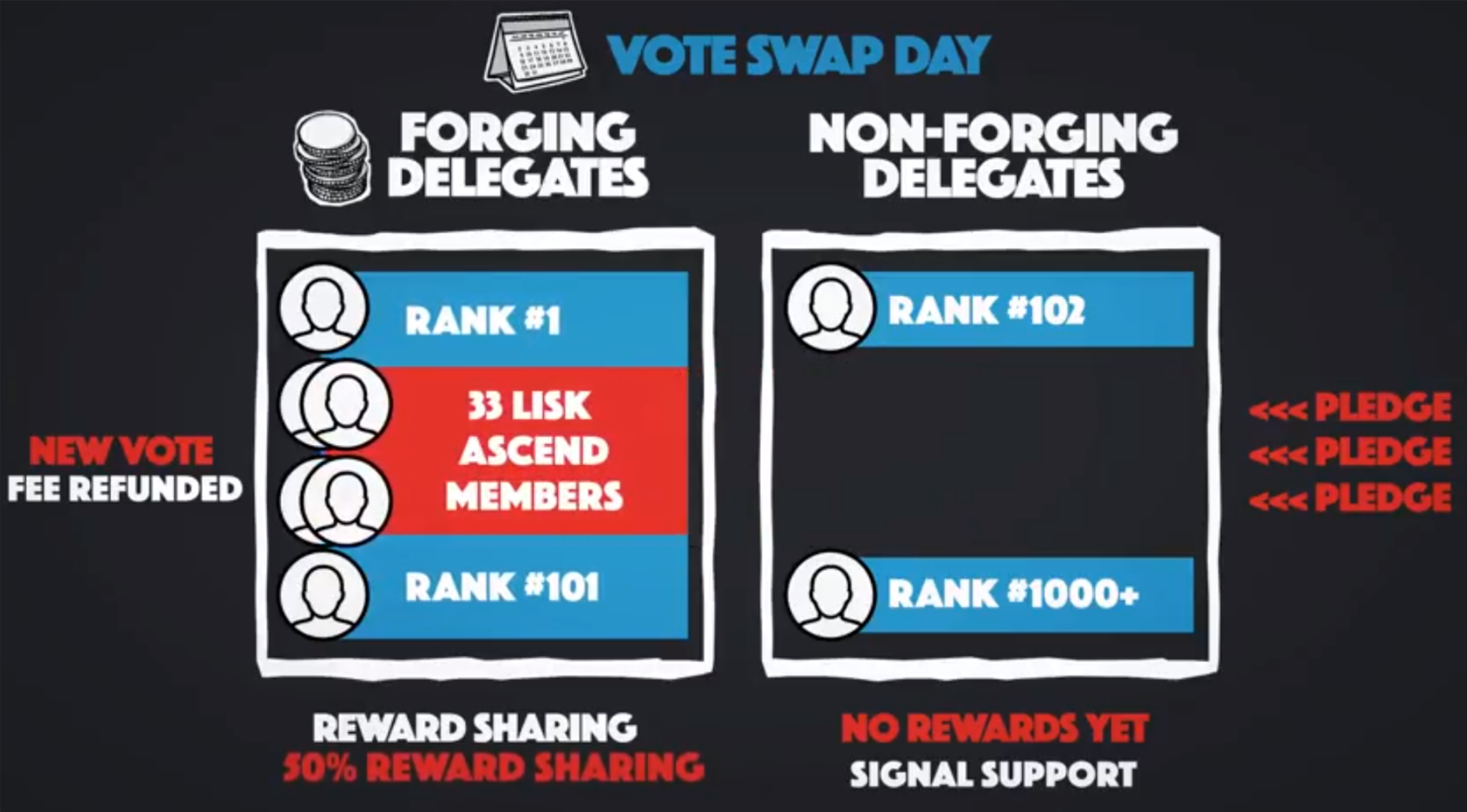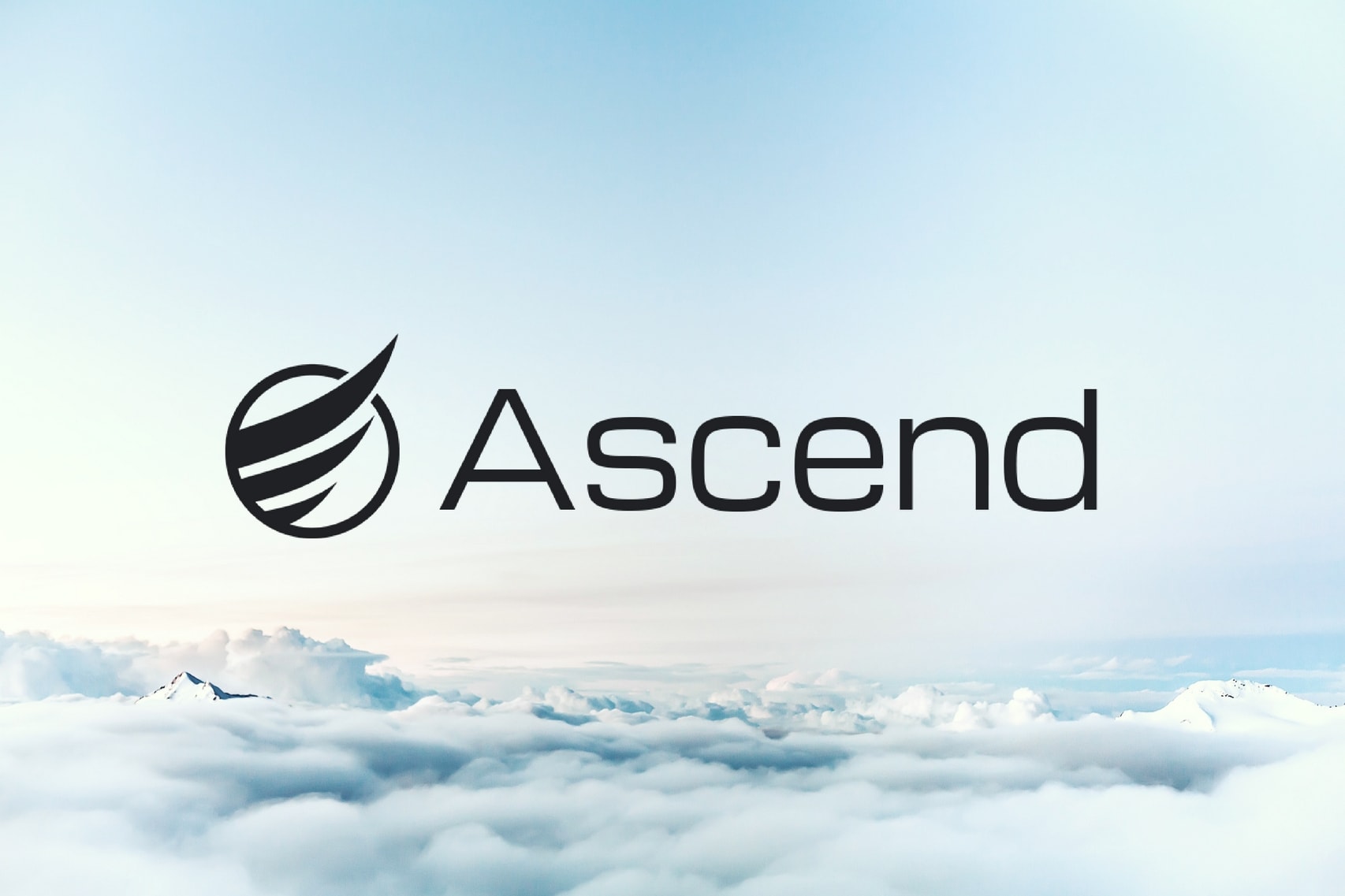We’ve already written about Lisk’s recent developments, the introduction of sidechain deployment on its blockchain, a growing number of application candidates, and even about an accountant who invested everything in Lisk.
In this article, we highlight the dynamics behind the decentralized network of the Lisk blockchain.
The Lisk network provides an excellent case study of how the Delegated Proof-of-Stake consensus model has been put into practice. We first look at the practicalities and dynamics of the Lisk consensus model. Then we discuss a new player in the Lisk network that wants to alter the current distribution of power and how the network functions: Lisk Ascend.
The Lisk Consensus Algorithm
Lisk employs a Delegated Proof of Stake (DPoS) consensus algorithm. This consensus algorithm can be compared to a representative democracy in which people (Lisk holders) vote for representatives (delegates) to express and act upon their wants and needs for the system as a whole (the Lisk ecosystem).
There are 101 mainnet delegates in the Lisk ecosystem. The mainnet will be the core of the Lisk ecosystem to which other, smaller blockchain ecosystems will connect. These smaller ecosystems will be Lisk’s highly anticipated sidechains, for which a release date is not yet available. For now, the 101 mainnet delegates are the vital delegates of the Lisk blockchain.

The 101 mainnet delegates are active users that confirm transactions. They are incentivized to make the Lisk network faster and more secure through the creation of new Lisk tokens, which are distributed to the 101 best performing delegates. This means that the delegates compete for Lisk rewards and to stay in the top 101.
Non-top 101 delegates are not able to forge new coins because they don’t verify transactions and thus do not receive block rewards. Whether a delegate can be in the top 101 depends on the number and weight of votes the delegate receives.
When a delegate isn’t doing what his voters want him to do, he will lose votes and likely get kicked out the top 101. So it’s in the delegate’s personal interest to keep performing according to the demands of his voters.
Delegates can also gain votes by contributing to the Lisk ecosystem. As it’s open source, their contributions are fully visible. This allows people to vote on delegates that they see are making valuable contributions to the Lisk platform.
Voting For Delegates
The delegates are voted on by the Lisk community through the DPoS consensus algorithm. As a reward for voting, delegates share a portion of their block rewards with their voters. This generates passive income for voters.
Here you can find the percentage of their earnings that each delegate shares with their voters. If your voting weight (your total Lisk holdings) is 1% of the total votes to a delegate, you receive 1% of the earnings shared by that delegate. Here you can calculate your earnings based on your votes.
To vote for delegates, you can use the desktop wallet or vote directly from the web-based Lisk Hub. You vote with your Lisk holdings and thus need to have Lisk in your private wallet before you can vote. The more Lisk, the higher the weight of your vote, and the more earnings your votes could potentially have.
Voting Pools
Even though you can only directly vote for individual delegates, some of these delegates have decided to team up and become a voting pool. The two most prominent voting pools in the Lisk community are the GDT pool and the Lisk Elite, but you also have the Sherwood Pool and the (non-forging) LiskPool.
Each pool has its own reward system and rules. Some of these pools give additional rewards to voters. A prerequisite for this is that you vote for all of the delegates that are in those pools.
It is advised to thoroughly research which delegates and delegate pools to invest in. Each delegate and pool make different contributions to the Lisk ecosystem in the form of proposals, projects, and applications. Thus there is far more to voting than simply generating passive income for yourself. An educated vote is an investment in the Lisk ecosystem.
DPoS Downsides
The DPoS consensus algorithm Lisk employs is far from perfect and there have been complaints from both outside and within the community.
Lisk has decided to allow for 101 forging delegates. This means that 51 collaborating delegates can potentially do as they please, since they have >50% control. This is known as a 51% attack.
Currently, the Lisk Elite pool has 55 delegates in the top 101. There has been no evidence whatsoever that they have been abusing this power, but the pool does have a 51% + majority in the forging delegate group.
Another downside is the lack of incentive to vote for non-forging delegates. Most Lisk holders will vote for personal financial gain, thus for the forging delegates. This situation will strengthen the position of forging delegates over time while non-forging delegates will need to put in great effort to become a forging delegate.
This would be fair if the voting system was completely unbiased and based on individual delegates only, but the emergence of pools gives the non-forging delegates a serious disadvantage. The most viable way to compete for forging delegate positions is to form another pool.
Meet Lisk Ascend

Lisk Ascend is a new initiative for a delegate pool. As stated on their website, Lisk Ascend’s mission is to make substantial contributions to the Lisk blockchain ecosystem and to secure the Lisk network. They plan to do this with their highly diverse team that includes developers, system engineers, marketers, designers, educators, sidechain developers, and more skilled individuals.
Dedication to the success of the Lisk ecosystem and transparency are the core values of the Lisk Ascend team. One important issue Lisk Ascend addresses is that they believe that delegate pools should not be able to occupy more than 50% of the delegate forging positions, a situation that currently does happen.
Moreover, the team states that contributions of the delegates should be easily discernible and apparent to the Lisk community. Forging delegates should owe their position to their value-adding activities to the Lisk ecosystem.
Another proposition is that forging delegates should share at least 50% of their block rewards with their voters. Currently, only 12 of the 101 delegates meet this proposed standard. Additionally, the Lisk Ascend team proposes that forging delegates should process voter payments transparently and refrain from efforts to profit themselves from the rewards meant for voters.
The Lisk Ascend Vision
The Lisk Ascend team has created a delegate pool model that meets their above-mentioned beliefs as to how Lisk’s DPoS algorithm should be handled by the community. In this model, there will be a maximum of 33 delegates associated with the Lisk Ascend pool. Through this, they ensure that Lisk Ascend cannot control the network.
These 33 delegates make up the Ascend member pool. Which delegate gets to be in this pool is decided by the Lisk Ascend community. This means that Lisk delegates ought to perform well and contribute to the Lisk ecosystem in order to maintain their forging delegate position. Based on community votes, underperforming delegates can be voted out of the pool and replaced by community members that have proven themselves.
To be able to change the current status quo of the forging delegates, Lisk Ascend has proposed a pledging model. Currently, voting for non-forging delegates gives voters zero rewards. Moreover, changing votes costs 1 Lisk, making it rather expensive for Lisk holders with smaller sized investments. To move 33 delegates to forging position would therefore pose a financial risk to Lisk holders.
In the pledge model, voters signal support for Lisk Ascend members, without directly voting or paying. The Lisk Ascend team is currently scouting for enough pledges to be able to move their 33 delegates into forging position.
Once enough pledges are received, the Lisk Ascend team will organize a Vote Swap Day. On this day, Lisk holders who pledged support will be asked to change their vote to Lisk Ascend delegates. The voting fee will be refunded to vote-changers by the Lisk Ascend team. If all goes well, the 101 forging delegate list could look very different after this day. Pledgers who changed their vote to Lisk Ascend will have their voting fee refunded and don’t have to worry about not getting reward shares.
Once the Lisk Ascend delegates have moved to forging position, these delegates will share 50% of their forging rewards with their voters. Furthermore, these rewards will only be distributed to voters, not to other Lisk Ascend delegates.

Conclusion
The novelty of decentralization through blockchain technology has created the need for ways to achieve consensus in unrelated communities. The Delegated Proof-of-Stake algorithm that Lisk employs is a perfect example of how this actually plays out in practice. This reward-based system to incentivize delegates to act in both their own interest and the interest of the community has provided great cases. The current 101 forging Lisk delegates are a perfect example of this.
In this consensus model, the community decides what is best for the platform. The Lisk Ascend team is part of this community and has taken the initiative to try and change the current delegate status quo. They propose an approach that is community driven, since the community can decide which 33 delegates will comprise the Lisk Ascend delegate pool and are consistently rewarded 50% of the block rewards. There will never be more than 33 Lisk Ascend delegates, meaning they cannot control the network.
Since your vote matters in the Lisk ecosystem, do your due diligence before you cast your votes. We’re excited to find out whether the Lisk Ascend team will succeed in receiving enough pledges and make Vote Swap Day a reality.

